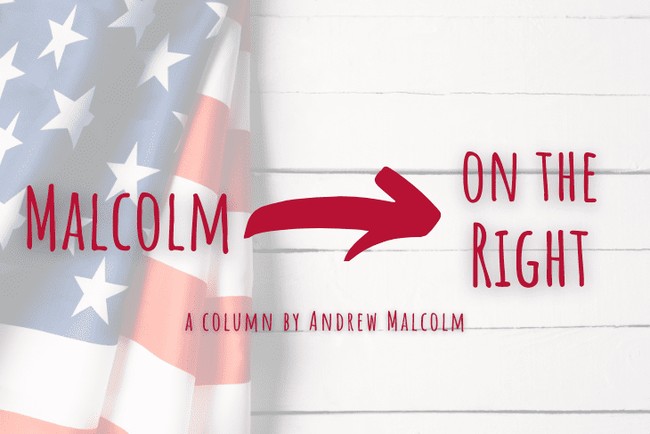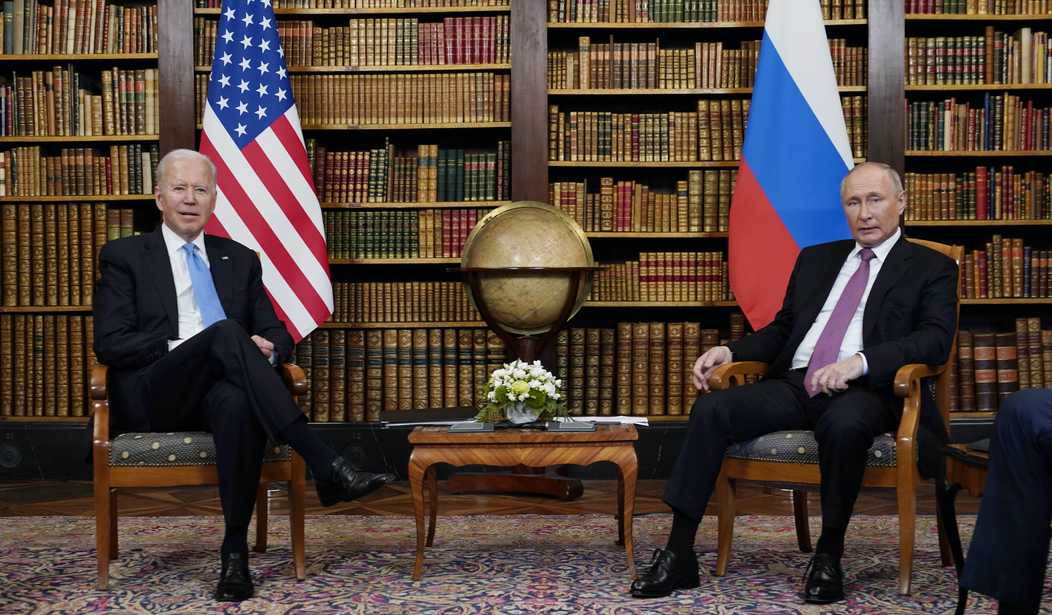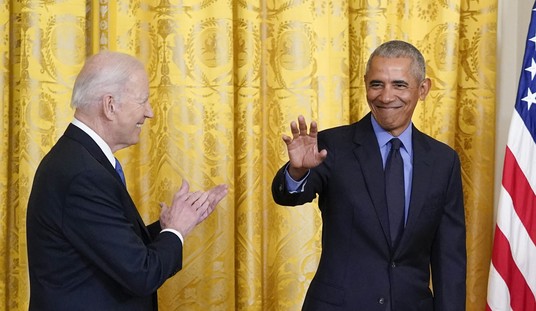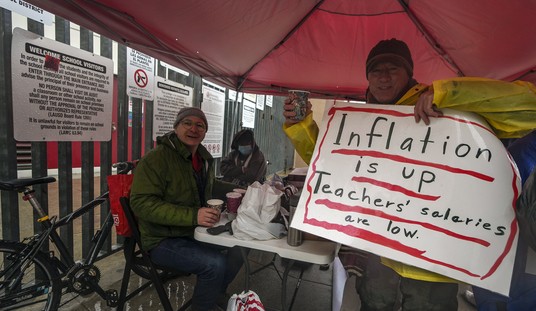Talks among the United States, NATO allies, and Russian President Vladimir Putin to defuse the volatile situation he’s purposely created are ongoing. Which is a good thing.
Russia’s now 100,000-plus troops ominously stationed along the Ukrainian border, seemingly prepared to invade its independent neighbor, have shown no sign of standing down. Which is a bad thing. And U.S. intelligence says they could seize Ukraine’s capital within days and inflict heavy casualties.
Joe Biden has said publicly it’s his “guess” that Putin will, in fact, invade Ukraine, which would be another step in Putin’s long-term bid to reconstruct a greater Russia.
Americans are unaccustomed to their commanders in chief guessing about things as serious as armed conflict. At least not publicly, in front of a country so relieved to finally have the nation’s longest armed conflict conclude just a few months ago, even in the disastrous way Biden botched the conclusion.
But as you may have noticed, Biden has displayed numerous unusual, even erratic behaviors since he took office and immediately began to earn his steadily declining job approval.
Hanging over the needless Ukraine affair is a broad array of coercive economic, political, and personal sanctions that Biden threatens to impose on the former super power. All of this provides a handy, foreign distraction from Biden’s failure to address the pandemic, its variants, and the mandates he promised not to impose but did anyway.
Julianne Smith, Biden’s ambassador to NATO, recently described Biden’s planned measures as “massive economic sanctions and consequences.”
“We’re looking at all options,” she added. “We’re trying to sharpen the choice for President Putin as he weighs his options here.”
While preferable to threatening actual military involvement against such a Russian invasion, Biden’s sanction threats have some fundamental problems. They can sound really good about deterring Moscow aggression during yet another photo-op, if Biden is able to read his lines coherently.
Ron Klain, Biden’s old buddy and chief of staff, described it the other day:
If (Putin) violates these international norms, if he upsets the regime that’s existed in Europe for decades now of respecting international borders … the consequences for Russia will be severe.
No doubt.
The main problem with sanctions is they don’t accomplish their intended goal. They change no behaviors. None. Zip. Nada. Sanctions do cause profound economic suffering and pain on regular people, the sort of collateral damage that Biden and his mentor Barack Obama talk so much about avoiding.
The idea being that the suffering imposed by sanctions on a misbehaving country’s population and some of its select officials will be so great that leaders will inevitably be forced to change their undesirable policies.
It seems so simple to the minds of American leaders of both parties. Show Americans you’re raising the political and economic costs of bad behavior, like threatening a teenager with grounding for coming home late.
But leaders targeted by U.S. sanctions are not impressionable teenagers fearful of missing a rock concert. They are tough, ruthless rulers unresponsive to citizen pressures, even if anyone was bold enough to speak out. Backing down to the U.S. could invite domestic opposition.
The mullahs of Iran are scheming to build their own nuclear weapons and delivery systems. Venezuela’s Nicolas Maduro doesn’t mind losing five or six million malcontent refugees to adjacent countries because of U.S. sanction hardships, as long as he remains in power.
Last summer, Biden used sanctions to freeze Afghan government assets of some $9 billion in retaliation for the Taliban winning, a fraction of the $85 billion in modern military gear abandoned in his botched troop withdrawal.

The latest, long-winded Cuban dictator could care less if his citizens must make-do with cars from the 1950s. North Korea’s Kim Jung-un, his father, and grandfather all endured years of Western sanctions over the Communist country’s nuclear ambitions.
Kim still manages to get his favorite champagne, cheese, and pistachio ice cream brought to one of his six houses with their own railroad siding. Sanctions didn’t stop him from having his half-brother assassinated in Malaysia and if anyone complains about hardships, he might get executed by an anti-aircraft cannon, as one senior critic was.
Kim wanted Donald Trump to lift economic sanctions as a precondition to a summit. Trump refused. They met anyway, twice.
Without getting anything in return, Biden last year lifted some sanctions on the builders of Putin’s Nord Stream 2 undersea gas pipeline to Europe, and on some Iranians as freebie goodwill gestures. Obama tried a similar tack in 2009, killing a missile defense system in Eastern Europe to curry favor with Putin.
These naïve gestures by Democrat presidents failed to accomplish anything.
Even with all the tough sanction talk up front, none of those strictures have changed their target’s behavior. Maduro is still in power despite Trump sanctions. Iran is closer than ever to its nuclear enrichment goals.
The Myanmar generals haven’t restored democracy. Cuba is Cuba. And Kim recently tested a hypersonic missile that traveled out over the Pacific at 10 times the speed of sound, about 4,000 miles an hour.
Still, Biden vows new, really tough sanctions if Russia invades Ukraine. Winter is the best time for Russian tanks and trucks, as most of the ground in that almost Texas-sized country is frozen hard.
But here’s the problem with that. Putin annexed Crimea from Ukraine in 2014. Of course, Obama slapped on sanctions described as really tough. They failed to prompt Putin to give back his geographic prize. But they did hurt.
The former KGB colonel has no term limits or opposition. So, he’s spent the last eight years hardening the Russian economy against future sanctions.
As the New York Times recently reported:
Russia has drastically reduced its use of dollars, and therefore Washington’s leverage. It has stockpiled enormous currency reserves, and trimmed its budgets, to keep its economy and government services going even under isolation. It has reoriented trade and sought to replace Western imports.
Additionally, much of Europe has become addicted to Russian energy, currently delivered through a pipeline across Ukraine and, ultimately, the new Nord Stream link. How keen will NATO countries be to threaten that energy supply with tough sanctions that might prompt Putin to turn the spigot down or off?
Putin has also restructured corporate debts into rubles from dollars, and tightened domestic spending to enable the country to withstand a drop in energy prices as low as $44 a barrel from its current level in the 80s.
By redirecting oil and gas revenues, Putin has built the country’s currency reserves to an impressive $630 billion, mostly in gold, Euros, and China’s renminbi. Only 16 percent is now in dollars.
All of this, combined with NATO’s reluctance for a new confrontation after 20 years of now-empty conflict in Afghanistan, may embolden Putin to think he could withstand whatever symbolic troop moves and sanctions Biden and NATO impose.
Ukraine was part of the Russian Empire for centuries until the collapse of the Soviet Union in 1991, when it gained independence like other former Soviet Republics. In recent years it has stressed Ukrainian ideals and language over its Russian heritage. The drift has included talk of one day joining NATO.
Last July, about four months after Moscow began its troop buildup near Ukraine, the Kremlin published a lengthy article allegedly written by Putin titled “The Historical Unity of Russians and Ukrainians.” In it the Russian president reveled in the purported historical links of the two lands running back a millennium.
Putin wrote: “When I was asked about Russian-Ukrainian relations, I said that Russians and Ukrainians were one people – a single whole.”
Even in translation, those words attributed to today’s Russian czar don’t sound like anything subject to sanction.













